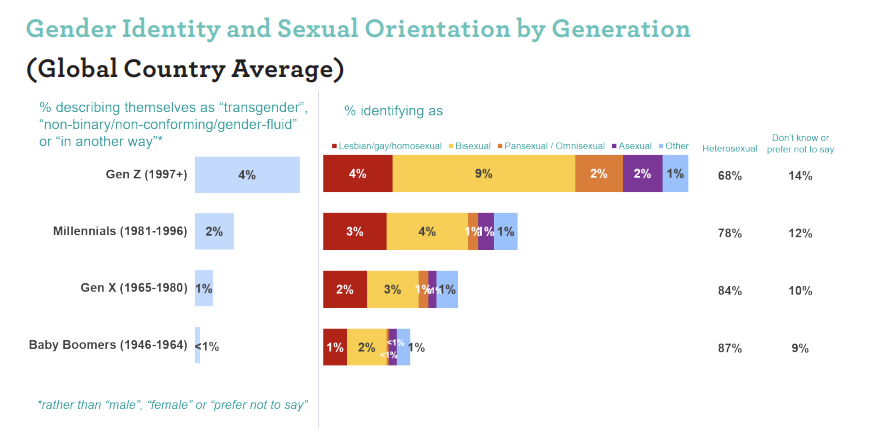Think about how you feel when someone constantly calls you the incorrect name even though you have introduced yourself. You might feel invalidated or overlooked. It might make you want to withdraw.
Making an assumption about someone's gender identity or the pronouns they use can have a similar effect. Much like our names, pronouns articulate who we are and how we want the world to address us. Using the wrong pronoun for someone can be insulting and harmful. In fact, a 2018 Harris Poll revealed that 65% of people believe employers should step in when workers repeatedly misuse someone's pronouns, and 58% believe repeated misuse constitutes workplace harassment.
The Adecco Group believes in talent, not labels. We envision a world in which skills matter and where everyone has a chance to be part of the same world of work. That is why we recently compiled #2 Qzine: Pronoun and language strategies for inclusion in the workplace. This guide offers practical guidelines that can be effective in companies with an existing organizational culture and policies that support and protect transgender and Gender Non-Conforming (GNC) people.
Beyond the binary
Across the world, more people understand gender more expansively than just existing within a binary — particularly the idea that people only exist as boys and girls or men and women.

Our pronouns have evolved too. For over 600 years, 'they' has been the gender-neutral, singular pronoun corresponding with pronouns like everyone, someone, and anyone. Recently, the term has been more commonly used to refer to someone whose gender identity is non-binary. In 2019, the Merriam-Webster dictionary named 'they' its word of the year after internet searches for the term rose by 313%. When someone introduces themselves and shares their personal pronouns, they are letting others know how to address or refer to them in conversation. But that doesn't mean they are fixed there forever. Someone’s pronouns could change throughout their life.
Laying the foundation
We can all create more LGBTQ+ and gender-inclusive workplaces by making simple changes to how we engage with one another: These everyday practises can make a difference to mental health, productivity and employee retention. But it's important to keep the recommendations voluntary to avoid inadvertently pressuring someone to reveal their gender.
- At the start of meetings, staff could introduce themselves by sharing names and pronouns. “Hello. I’m Simon, my pronouns are he/him.”
- When addressing groups of people, terms like “ladies and gentlemen” can be replaced with gender-neutral words: team, everyone, colleagues, folks, valued quests.
- In documents, create a space for the voluntary declaration of pronouns and gender identity options outside of male and female.
- Include pronouns in email signatures. When making this change, companies should also develop communication plans to educate the staff and address their questions.
- When you make a mistake: acknowledge it and correct yourself without dwelling on it, being defensive, or making the conversation about you.
These everyday practises can make a difference to mental health, productivity and employee retention. But it's important to keep the recommendations voluntary to avoid inadvertently pressuring someone to reveal their gender.
Encouraging respect and authenticity
Acknowledging the expansiveness of gender and addressing people with respect goes a long way in validating identity, encouraging authenticity and creating truly inclusive and supportive organizational cultures. And we all thrive in environments where we feel supported, safe and affirmed.



